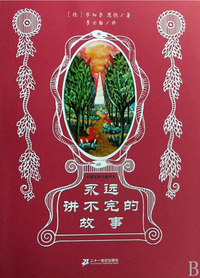LESSON 56 The story of horatius
A LEGEND OF ANCIENT ROME.
The early history of Rome, as recorded by Livy and other Latin writers, was probably compiled from legendary poems that had been transmitted from generation to generation, and often rehearsed at the banquets of the great. The historian Macaulay has aimed at reconstructing some of these poetic legends, which he has given to the world under the title of Lays of Ancient Rome. As a specimen of these beautiful and stirring poems, the "Story of Horatius" is here given.
It is stated by all the Latin historians, that, a few years after the expulsion of the Tarquins① for their despotism and crimes, the neighbouring Etrua cans,② to which nation they belonged, endeavoured to restore the tyrants to power, and came against Rome with an overwhelming force. The Romans, repulsed at first, fled across a wooden bridge over the Tiber, when the Roman Consul③ ordered the bridge to be destroyed, to prevent the enemy from entering the city. The continuation of the legend is supposed to be narrated by one of the Roman minstrels, at a period one hundred years later than the events recorded: —
But the Consul's brow was sad,
And the Consul's speech was low,
And darkly looked he at the wall,
And darkly at the foe.
"Their van will be upon us
Before the bridge goes down;
And if they once may win the bridge,
What hope to save the town?"
Then out spake brave Horatius,the captain of the gate:
"To every man upon this Earth
Death cometh, soon or late;
And how can man die better,than facing fearful odds,for the ashes of his fathers,
And the temples of his gods!
"Hew down the bridge, Sir Consul,with all the speed ye may;
I, with two more to help me,
Will hold the foe in play.
In you strait path a thousand
May well be stopped by three;
Now, who will stand on either hand,
And keep the bridge with me?"
Then out spake Spurius Lartius, —
A Ramnian④ proud was he:
"Lo, I will stand at thy right hand,
And keep the bridge with thee."
And out spake strong Herminius, —
Of Titian blood was he:
"I will abide on thy left side,
And keep the bridge with thee."
"Horatius,"quoth the Consul,
"As thou say'st, so let it be."
And straight against that great array
Forth went the dauntless three.
Meanwhile the Tuscan army,
Right glorious to behold,
Came flashing back the noonday light,
Rank behind rank, like surges bright
Of a broad sea of gold.
Four hundred trumpets sounded
A peal of warlike glee,
As that great host, with measured tread,
And spears advanced, and ensigns spread,
Rolled slowly toward the bridge's head,
Where stood the dauntless three.
The three stood calm and silent,
And looked upon the foes,
And a great shout of laughter
From all the vanguard rose:
And forth three chiefs came spurring
Before that mighty mass;
To earth they sprang, their swords they drew,
And lifted high their shields, and flew
To win the narrow pass.
But the scorn and laughter of the Etruscans were soon changed to wrath and curses, for their chiefs were quickly laid low in the dust at the feet of the "dauntless three."
But now no sound of laughter
Was heard among the foes.
A wild and wrathful clamour
From all the vanguard rose.
Six spears' length from the entrance
Halted that mighty mass,
And for a space no man came forth
To win the narrow pass.
But hark! the cry is "Astur:"
And lo! the ranks divide,
And the great lord of Luna⑤
Comes with his stately stride.
Upon his ample shoulders
Clangs loud the fourfold shield,
And in his hand he shakes the brand
Which none but he can wield.
The proud Astur advances with a smile of contempt for the three Romans, and turns a look of scorn upon the flinching Tuscans.
Then, whirling up his broadsword
With both hands to the height,
He rushed against Horatius,
And smote with all his might
With shield and blade Horatius
Right deftly turned the blow.
The blow, though turned, came yet too nigh:
It missed his helm, but gashed his thigh:
The Tuscans raised a joyful cry
To see the red blood flow.
He reeled, and on Herminius
He leaned one breathing-space;
Then, like a wild-cat mad with wounds,
Sprang right at Astur's face.
Through teeth and skull and helmet,
So fierce a thrust he sped,
The good sword stood a handbreadth out
Behind the Tuscan's head!
And the great lord of Luna
Fell at that deadly stroke,
As falls on Mount Alvernus a thunder-smitten oak.
Far o'er the crashing forest
The giant arms lie spread;
And the pale augurs, muttering low,
Gaze on the blasted head.
In the meantime the axes had been busily plied; and while the bridge was tottering to its fall, Lartius and Herminius regained the opposite bank in safety. Horatius remained facing the foe until the last timber had fallen, when, weighed down with armour as he was, he "plunged headlong in the tide."
No sound of joy or sorrow was heard from either bank;
But friends and foes, in dumb surprise,
With parted lips and straining eyes,
Stood gazing where he sank:
And when beneath the surges
They saw his crest appear,
All Rome sent forth a rapturous cry,
And even the ranks of Tuscany
Could scarce forbear to cheer.
But fiercely ran the current,
Swollen high by months of rain:
And fast his blood was flowing;
"Curse on him!" quoth false Sextus.
"Will not the villain drown?"
But for this stay, ere close of day
We should have sacked the town!" —
"Heaven help him!" quoth Lars Porsena,⑦
"And bring him safe to shore;
For such a gallant feat of arms
Was never seen before."
And now he feels the bottom;
Now on dry earth he stands;
Now round him throng the fathers,
To press his gory hands;
And now with shouts and clapping,
And noise of weeping loud,
He enters through the river-gate,
Borne by the joyous crowd.
Then follows an account of the rewards which a grateful people bestowed upon the hero. The minstrel thus concludes the legend: —
When the good-man mends his armour,
And trims his helmet's plume;
When the good-wife's shuttle merrily
Goes flashing through the loom;
With weeping and with laughter
Still is the story told,
How well Horatius kept the bridge
In the brave days of old.
执政官的眼里满是悲伤,
执政官的演讲满是低沉,
他用忧郁的眼神看着那堵城墙,
他忧郁地看着敌人。
“在那座桥坍塌之前,
他们的战车很快就会出现在我国的领土之上;
一旦他们攻下那座桥,
我们还会有什么希望挽救这座城池?”
于是,城门的守将贺雷修斯这样说:
“对于世上生灵万物,
死亡迟早终将降临;
若为守护先祖的遗骨与信仰的神殿直面强敌力战而没,
没有别的死亡能如此崇高。
请尽快砍断这桥吧,伟大的执政官!
我,与二位战友,将止敌于此。
背靠断桥,
哪怕仅得三人,
也能阻挡成千之敌;
来吧,谁愿伴我左右,
守桥与共?”
那是斯皮瑞斯·拉图斯在大叫——
他是个骄傲的罗米安人:
“瞧,我将会一直站在你的右手边,
同你一起保卫这座桥。”
那是强壮的赫马尼斯在大叫——
那橙红色的血是他的,
“我要守在你的左边,
同你一起保卫这座桥。”
执政官说,“贺雷修斯,
正如你所说的,顺其自然吧。
与强大的敌军相抗争吧,
四个人不会害怕三个人的。”
与此同时,托斯卡纳军同我们一起共同抗战,
带着无比荣耀的光荣,
直面反击正午的阳光,
即使排到最后,也要像波涛汹涌般光明,
在这如金子般的广阔的大海中。
四百支号角已经响起,
士兵们沉浸在战争的欢乐中,
作为这国家的主人,我们用矫健优雅的步伐,
像幼芽一样茁壮成长,向外伸展枝叶,
慢慢向桥头移动,
那里站着英勇无畏的三个英雄。
那三个勇士平静而沉默地站着,
眼睛直视前方的敌人,
大笑一声,
从所有的士兵中奋勇站起:
是三个前来鼓舞士气的长官,
在那强大的敌军到来之前;
他们跳到地面,拔出他们的利剑。
举起盾牌,向前冲吧,
去争取那狭窄的通道吧。
伊特鲁里亚人的笑声和蔑视
很快就变成了愤怒和诅咒,
在这英勇的三勇士面前,
他们的首领很快就倒在了他们三个的脚下。
在敌军中,
再也没听到笑声。
那狂野和愤怒的喧闹声,
从所有士兵的口中传出。
距城门口六个茅长的距离的地方,
被那强大的敌军所占据了,
那里已经容不下一个人了,
为了赢得那狭窄的通道。
但是听啊!那喊叫声是“阿斯图尔”:
瞧!士兵们都分列而行,
并且伟大的月亮之神,
迈着他庄严的步幅。
他肩上有足够的重担
他那四倍重的盾正叮叮作响,
他用手摇着那旗帜,
但他什么都挥舞不到。
骄傲的阿斯图尔带着蔑视那三个罗马人的微笑继续前进,
转身对退缩的托斯卡纳露出轻蔑的神情。
然后,挥起他的大刀,
双手向上举到相同的高度,
他向贺雷修斯冲去,
用尽他的全部力气,
贺雷修斯用盾牌和刀片巧妙地回避了,
巧妙地回避了这个攻击。
尽管回避了这次的攻击,但是距离太近了:
他们虽然没打到他的头盔,但是划伤了他的大腿:
看到有血流出,
紫百合快乐地喊叫着。
他趔趄地扑向了贺雷修斯,
他依靠着一个只够喘息的空间;
然后像个野猫一样因为身上的伤口而疯狂,
抓在阿斯图尔的脸上。
穿过了头盔,头骨,和牙齿,
他猛地一推,
那锋利的刀好像穿过了一个像手掌一样的东西,
在托斯卡纳的头颅后面!
伟大的月亮之神,
由于那致命的中风而倒下了,
正如被雷打到倒在阿佛那斯瀑布的橡树一样。
现在,在这破碎的森林里,
遍地散布着威力巨大的武器;
凝视着那该死的头,
占卜显得十分苍白无力,所有人好像都在喃喃低语。
与此同时,人们不停地使用者斧头;
当这座桥摇摇欲坠时,
拉图尔斯和贺雷修斯成功地占领了这座桥的另一个岸。
直到桥上的最后一根木材倒下了,
贺雷修斯仍然勇敢地直面敌人。
像他的笨重的盔甲一样,
他一下子倒在了潮汐中。
在河的另一岸听不到快乐和悲伤的声音,
但是不论是战友还是敌人,都惊讶地吓傻了,
嘴巴张开着,眼睛里充满着紧张的神情,
呆站着,凝视着他沉没的地方:
当波涛汹涌时,
他们看到他的头出现了,
所有的罗马人都发出狂喜的喊叫声,
甚至是在托斯卡纳的队伍中,
都忍不住欢呼起来了。
整个天空中都充斥着电闪雷鸣,
大地上弥漫着积累了数月的雨水:
他的血液快速地流动着;
假塞克斯图斯这样说道,“诅咒他!”
“那恶棍不会被淹死吗?”
“在这呆一天,就少一天,
我们应该把这个城市洗劫一空!”
拉斯波塞那祈求道,“上天哪,请你帮帮他吧!”
安全地把他带到海的那一边吧;
对于这样一个英勇的壮举,
是从来没有见过的。”
现在他感觉很糟糕;
他现在站在干旱的大地上;
老人们都簇拥在他的周围,
为了握他那光荣的手掌;
现在他们在尖叫着,鼓掌。
还有激动地大声哭泣的声音,
他穿过了护城河的门,
被欢快喜悦的群众所包围。
接下来是一群感恩的人们
对这个英雄的感谢词。
吟游诗人因此总结了这个传奇故事:
当这位勇士修补他的盔甲时,
当他装饰他头盔旁的羽毛时;
当那位勇士的旗子正欢乐地穿梭在织机上,
烛光正在织布机上闪烁;
带着欢笑与泪水,
故事仍然在被诉说着,
在过去那勇敢的日子里,
贺雷修斯是如何保卫那座桥的。



